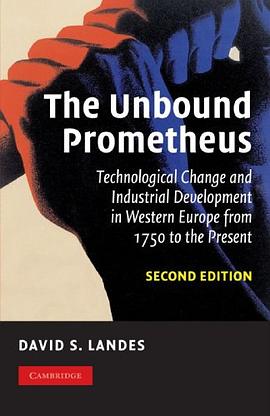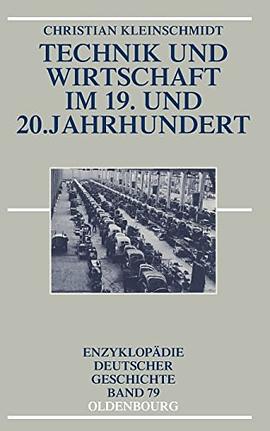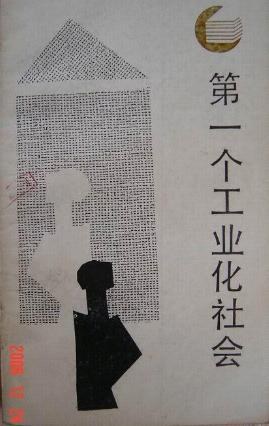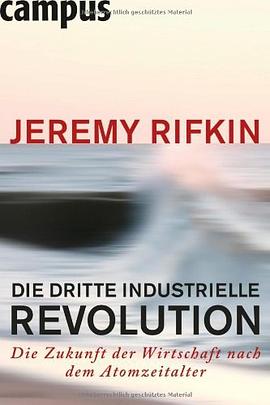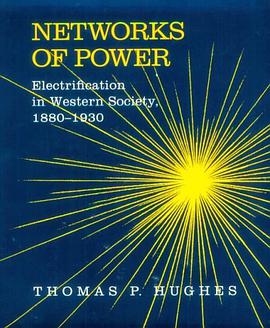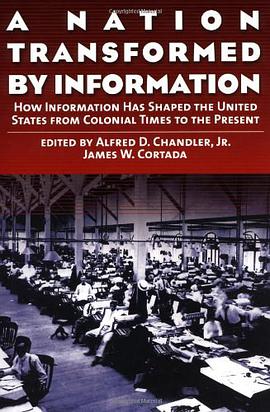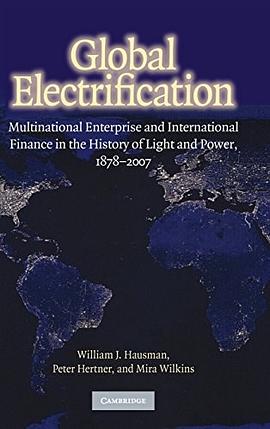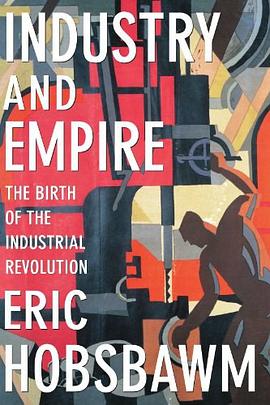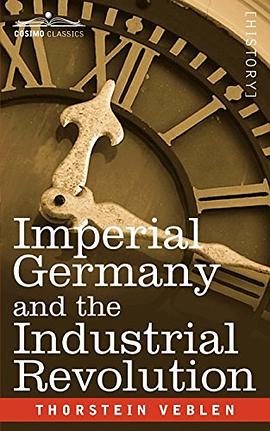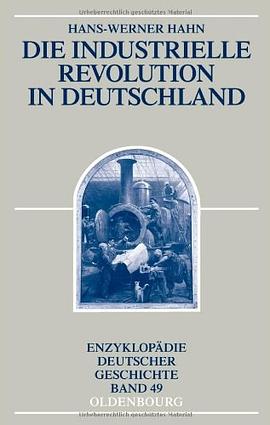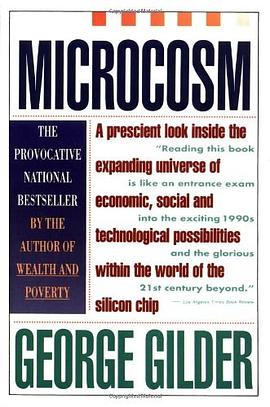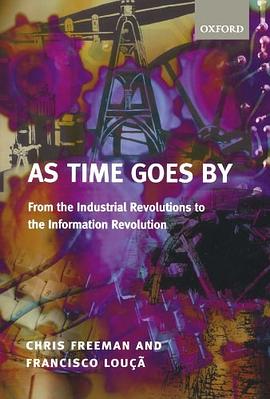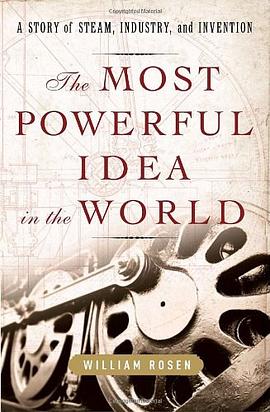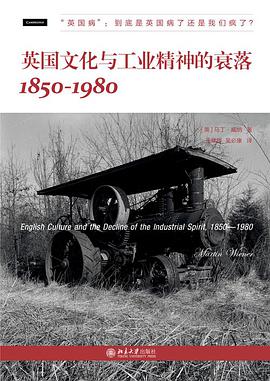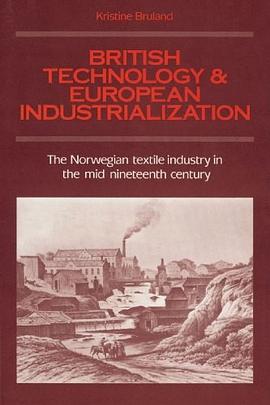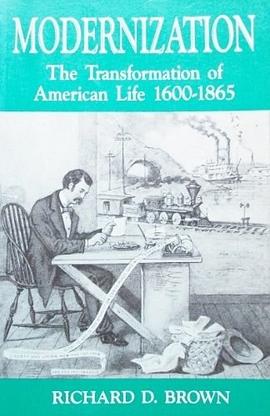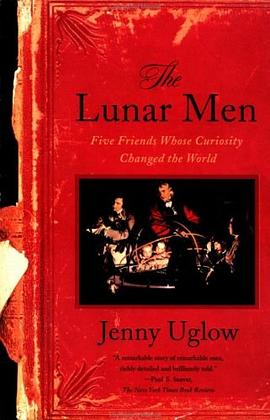工業革命
The Unbound Prometheus 豆瓣
作者:
David S. Landes
Cambridge University Press
2003
- 7
For over thirty years David S. Landes's The Unbound Prometheus has offered an unrivalled history of industrial revolution and economic development in Europe. Now, in this updated edition, the author reframes and reasserts his original arguments in the light of debates about globalisation and comparative economic growth. The book begins with a classic account of the characteristics, progress, and political, economic and social implications of the Industrial Revolution in Britain, France and Germany. Professor Landes here raises the much-debated question: why was Europe the first to industrialise? He then charts the economic history of the twentieth-century: the effect of the First World War in accelerating the dissolution of the old international economy; the economic crisis of 1929-32; Europe's recovery and unprecedented economic growth following the Second World War. He concludes that only by continuous industrial revolution can Europe and the world sustain itself in the years ahead.
Technik und Wirtschaft im 19. und 20. Jahrhundert 豆瓣
作者:
Christian Kleinschmidt
Oldenbourg Wissenschaftsverlag
2006
- 11
Die dritte industrielle Revolution 豆瓣
作者:
Jeremy Rifkin
Campus Verlag
2011
- 9
Networks of Power 豆瓣
作者:
Thomas Parke Hughes
The Johns Hopkins University Press
1993
- 3
Awarded the Dexter Prize by the Society for the History of Technology, this book offers a comparative history of the evolution of modern electric power systems. It described large-scale technological change and demonstrates that technology cannot be understood unless placed in a cultural context.
A Nation Transformed by Information 豆瓣
作者:
Alfred D. Chandler
/
James W. Cortada
Oxford University Press
2000
- 8
The Industrial and Commercial Revolutions in Great Britain During the Nineteenth Century 豆瓣
作者:
Knowles, L. C. A.
2006
- 4
Global Electrification 豆瓣
作者:
William J. Hausman
/
Peter Hertner
…
Cambridge University Press
2008
- 4
This 2008 book examines how multinational enterprises and international finance influenced the course of electrification around the world. Multinational enterprises played a crucial role in the spread of electric light and power from the 1870s through the first three decades of the twentieth century. However, their role did not persist, and by 1978 multinational enterprises in this sector had all but disappeared, replaced by electrical utility providers with national business structures. Yet, in recent years, there has been a vigorous revival. This book, a co-operative effort by the three authors and a group of experts from many countries, offers an analysis of the history of multinational enterprise. The authors take an integrated approach, not simply comparing national electrification experiences, but supplying a truly global account.
Industry and Empire 豆瓣
作者:
Eric Hobsbawm
The New Press
1999
Imperial Germany and the Industrial Revolution 豆瓣
作者:
Thorstein Veblen
Cosimo Classics
2006
- 9
Grundriß der deutschen Wirtschaftsgeschichte 豆瓣
作者:
Knut Borchardt
Vandenhoeck & Ruprecht
1978
Die Industrielle Revolution in Deutschland 豆瓣
作者:
Hans-Werner Hahn
Oldenbourg Wissenschaftsverlag
2011
- 3
As Time Goes By 豆瓣
作者:
Chris Freeman
/
Francisco Louçã
Oxford University Press, USA
2002
- 5
How can we best understand the impact of revolutionary technologies on the business cycle, the economy, and society? Why is economics meaningless without history and without an understanding of institutional and technical change? Does the 'new economy' mean the 'end of history'? These are some of the questions addressed in this authoritative analysis of economic growth from the Industrial Revolution to the 'new economy' of today. Chris Freeman has been one of the foremost researchers on innovation for a long time and his colleague Francisco Louca is an outstanding historian of economic theory and an analyst of econometric models and methods. Together they chart the history of five technological revolutions: water-powered mechanization, steam-powered mechanization, electrification, motorization, and computerization. They demonstrate the necessity to take account of politics, culture, organizational change, and entrepreneurship, as well as science and technology in the analysis of economic growth. This is a well-informed, highly topical, and persuasive study of interest across all the social sciences.
The Most Powerful Idea in the World 豆瓣
作者:
William Rosen
Random House
2010
- 6
If all measures of human advancement in the last hundred centuries were plotted on a graph, they would show an almost perfectly flat line—until the eighteenth century, when the Industrial Revolution would cause the line to shoot straight up, beginning an almost uninterrupted march of progress.
In The Most Powerful Idea in the World , William Rosen tells the story of the men responsible for the Industrial Revolution and the machine that drove it—the steam engine. In the process he tackles the question that has obsessed historians ever since: What made eighteenth-century Britain such fertile soil for inventors? Rosen’s answer focuses on a simple notion that had become enshrined in British law the century before: that people had the right to own and profit from their ideas.
The result was a period of frantic innovation revolving particularly around the promise of steam power. Rosen traces the steam engine’s history from its early days as a clumsy but sturdy machine, to its coming-of-age driving the wheels of mills and factories, to its maturity as a transporter for people and freight by rail and by sea. Along the way we enter the minds of such inventors as Thomas Newcomen and James Watt, scientists including Robert Boyle and Joseph Black, and philosophers John Locke and Adam Smith—all of whose insights, tenacity, and ideas transformed first a nation and then the world.
William Rosen is a masterly storyteller with a keen eye for the “aha!” moments of invention and a gift for clear and entertaining explanations of science. The Most Powerful Idea in the World will appeal to readers fascinated with history, science, and the hows and whys of innovation itself.
In The Most Powerful Idea in the World , William Rosen tells the story of the men responsible for the Industrial Revolution and the machine that drove it—the steam engine. In the process he tackles the question that has obsessed historians ever since: What made eighteenth-century Britain such fertile soil for inventors? Rosen’s answer focuses on a simple notion that had become enshrined in British law the century before: that people had the right to own and profit from their ideas.
The result was a period of frantic innovation revolving particularly around the promise of steam power. Rosen traces the steam engine’s history from its early days as a clumsy but sturdy machine, to its coming-of-age driving the wheels of mills and factories, to its maturity as a transporter for people and freight by rail and by sea. Along the way we enter the minds of such inventors as Thomas Newcomen and James Watt, scientists including Robert Boyle and Joseph Black, and philosophers John Locke and Adam Smith—all of whose insights, tenacity, and ideas transformed first a nation and then the world.
William Rosen is a masterly storyteller with a keen eye for the “aha!” moments of invention and a gift for clear and entertaining explanations of science. The Most Powerful Idea in the World will appeal to readers fascinated with history, science, and the hows and whys of innovation itself.
英国文化与工业精神的衰落:1850—1980 豆瓣
作者:
[美] 马丁·威纳
译者:
王章辉
/
吴必康
北京大学出版社
2013
- 8
英国是世界上最早的I业国家,但是英国中上阶层人士从未对工业主义有过好感。本书引用小说、艺术、诗歌、政论、哲学、社会惯习等诸多方面的文献,生动地探讨7英国文化对只注重经济增长的现代工业社会的抵触和批判。从19世纪中叶一直到20世纪80年代,这一思潮深刻地影响了英国文化:包括文学、报纸、建筑,以及社会、历史、经济思想。学术界过去一直将英国这种注重享乐不思进取(即重生活质量不重GDP)状况称为“英国病”,但是回望过去,也许我们应该换种眼光来看。
British Technology and European Industrialization 豆瓣
作者:
Bruland, Kristine
2003
- 11
How did small European economies acquire the technologies and skills needed to industrialize in the nineteenth century? In this important contribution to a long-standing debate, Kristine Bruland looks at the Norwegian experience to show how a technological infrastructure was created, and suggests that much of this was due to the efforts of British machine makers who from the mid 1840s vigorously sought foreign markets. Providing not only basic technical services but also skilled labour to set up and then supervise the operation of the new machinery, British textile engineering firms were able to supply a complete 'package' of services, significantly easing the initial technical problems faced by Norwegian entrepreneurs. Kristine Bruland's case-study of the Norwegian textile industry demonstrates clearly the paradox that Britain's entrepreneurial efforts in the supply of capital goods overseas were largely responsible for the creation of the technical industrial bases of many of her major foreign competitors.
Modernization 豆瓣
作者:
Richard D. Brown
Waveland Pr Inc
1988
- 8
The Lunar Men 豆瓣
作者:
Jenny Uglow
Farrar, Straus and Giroux
2003
- 10
In the 1760s a group of amateur experimenters met and made friends in the English Midlands. Most came from humble families, all lived far from the center of things, but they were young and their optimism was boundless: together they would change the world. Among them were the ambitious toymaker Matthew Boulton and his partner James Watt, of steam-engine fame; the potter Josiah Wedgwood; the larger-than-life Erasmus Darwin, physician, poet, inventor, and theorist of evolution (a forerunner of his grandson Charles). Later came Joseph Priestley, discoverer of oxygen and fighting radical.
With a small band of allies they formed the Lunar Society of Birmingham (so called because it met at each full moon) and kick-started the Industrial Revolution. Blending science, art, and commerce, the Lunar Men built canals; launched balloons; named plants, gases, and minerals; changed the face of England and the china in its drawing rooms; and plotted to revolutionize its soul.
Uglow's vivid, exhilarating account uncovers the friendships, political passions, love affairs, and love of knowledge (and power) that drove these extraordinary men. It echoes to the thud of pistons and the wheeze and snort of engines and brings to life the tradesmen, artisans, and tycoons who shaped and fired the modern age.
With a small band of allies they formed the Lunar Society of Birmingham (so called because it met at each full moon) and kick-started the Industrial Revolution. Blending science, art, and commerce, the Lunar Men built canals; launched balloons; named plants, gases, and minerals; changed the face of England and the china in its drawing rooms; and plotted to revolutionize its soul.
Uglow's vivid, exhilarating account uncovers the friendships, political passions, love affairs, and love of knowledge (and power) that drove these extraordinary men. It echoes to the thud of pistons and the wheeze and snort of engines and brings to life the tradesmen, artisans, and tycoons who shaped and fired the modern age.

